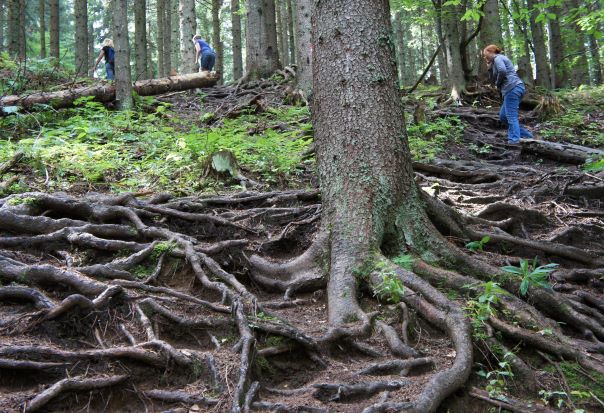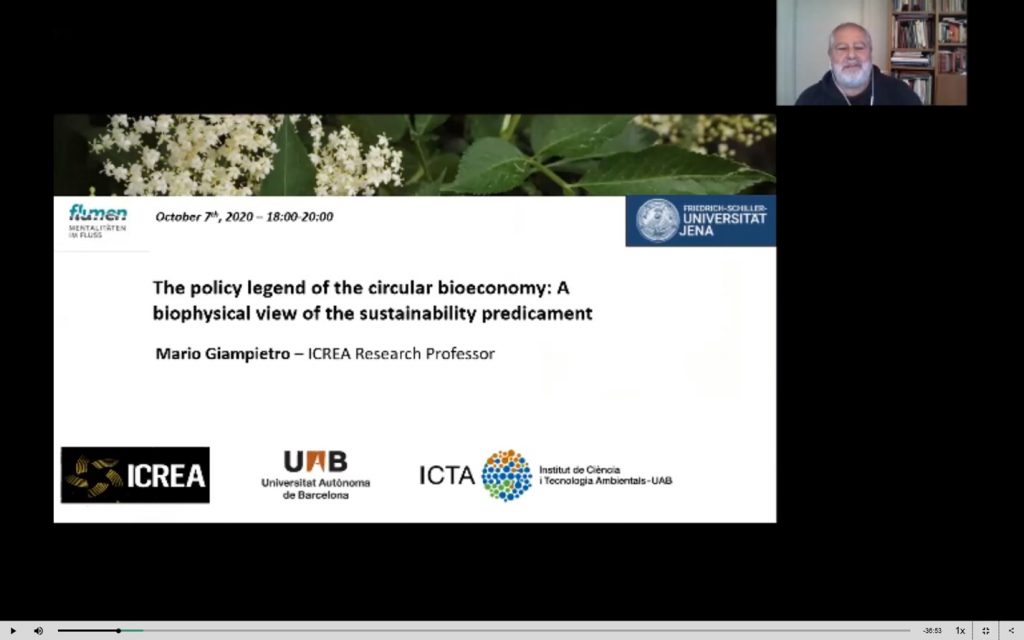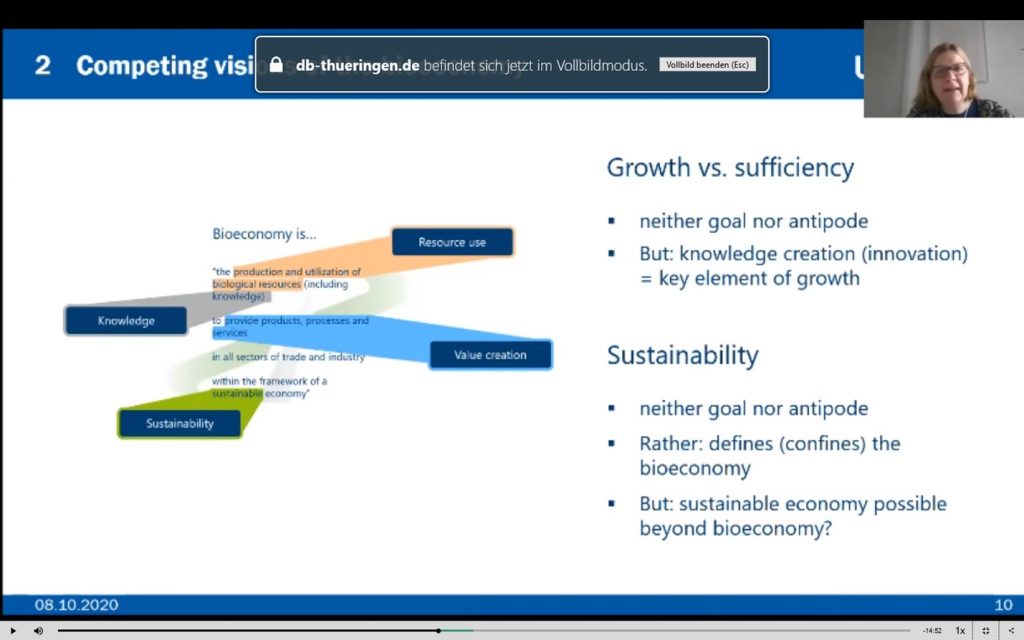
It’s the (bio)economy, stupid!
The future of growth and the promise of the bioeconomy
7th – 8th October 2020, Friedrich-Schiller-University Jena, Germany
The report
Programme
Presentations in the Workshop
Videos

Mario Giampietro, ICREA Research Professor, Institute of Environmental Science and Technology (ICTA) at the Universitat Autònoma de Barcelona: “The policy legend of the circular bioeconomy: A biophysical view of the sustainability predicament”, online lecture, October 7th, 2020. Moderation: Anne Tittor

Daniela Thrän, UFZ Helmholtz Centre for Environmental Research Leipzig, 2012-2019 member of the German Bioeconomy Council: “Bioeconomy’s Contribution to Economic Growth”, online keynote speech, October 8th, 2020. Moderation: Dennis Eversberg.
What was the workshop about?
The dominant narrative of the ongoing debates on the bioeconomy paints the picture of a future economy based on renewable energies and biological resources that will both deliver ‘green’ economic growth and enable modern societies to phase out fossil fuels and build a sustainable future. But are these promises of a ‘bio-based’ renewed cycle of accumulation and growth warranted? Can growth-based economies really be made sustainable and globally just based on bioeconomic materials and resources? Does the bioeconomy enable a defossilization of economic activity and a decoupling of environmental throughput and GDP? Or would the transformation of modern societies toward post-fossil, bio-based economic activities involve an overcoming of unlimited economic growth? Finally, what can critical debates about the bioeconomy and discussions on sustainable growth, green growth and degrowth learn from each other?
While fossil-fuelled economies run on a constantly accelerating linear throughput of extracted fossil resources, bio-based economies rely on materials whose availability is subject to biophysical limits and cyclical regenerative processes that cannot be expanded and accelerated at will. It is uncertain whether the accumulation of ever-increasing amounts of energy and goods can continue in an economy based on renewable resources. Any break with the logics of accumulation, extraction and expansion is likely to entail new distributional conflicts, but it may also be a starting point for a fundamental transformation of modern societies: The social organization of work and care activities, consumption patterns and people’s mindsets might change, or it might become clear that they need to change. In a similar vein, political actors and strategies often claim that the bioeconomy will bring far-reaching change – the EU’s bioeconomy strategy anticipates ‘rapid, concerted and sustained changes in lifestyle and resource use that cut across all levels of society and the economy’. At the same time, the concrete actions of key players in politics, science and industry seem to assume that the bioeconomy will allow them to continue with business as usual and avoid a turn away from the growth paradigm.
The aim of our workshop was to discuss the relationships between the bioeconomy and economic growth from a multidisciplinary and global perspective. We wanted to foster an exchange between debates on the ecological and social implications of the bioeconomy and critical debates on sustainable growth, green growth and degrowth.

